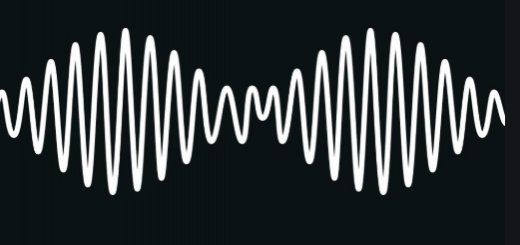Settle for a Draw by Arctic Monkeys Lyrics Meaning – Dissecting the Compromise in Relationships
Lyrics
It might start different but it ends up the same
One minute you’re casually speaking
The next it all goes up and you pour fuel on the flame
With your Jerry can of words and tones
And no one’s gonna start a revolution
So we best leave it well alone
And there’s something that Frankie used to say, Apparently
Oh he says settle for a draw
Well you’re not gonna get no more
So you should settle for a draw
I told you once I’m sure
I told you once I’m sure
You should settle for a draw
Why don’t you settle for a draw?
Well you’re right it is one set of rules for her
And then another set for you
But that’s just the way it is I suppose
And there’s nowt you can do
And lets not fall in the trap
Of Answering back
I am just a beginner
But she’ll be the only winner
That’s for sure
So take the draw, if it’s available
And if it sets on fire don’t get out your jerry can of…
…words and tones
And no one’s gonna start a revolution
So we best leave it well alone
And there’s something that Frankie used to say, Apparently
Oh he says settle for a draw
Well you’re not gonna get no more
So you should settle for a draw
I told you once I’m sure
I told you once I’m sure
You should settle for a draw
Why don’t you settle for a draw?
The Arctic Monkeys have always had a knack for encapsulating the essence of Northern England youth culture with their sharp lyrics and dynamic guitar riffs. Among their arsenal of thought-provoking songs stands ‘Settle for a Draw,’ a track that orbits the concept of compromise in the face of relentless conflict. It’s a lesser-known cut from the band’s early days but crackles with the same energy and piercing social commentary as their biggest hits.
Scratching beneath the surface reveals a complex tapestry of themes, extending from interpersonal communications to the broader notion of societal discord. The song, while deceptively simple in its punkish melody, carries the weight of a Socratic dialogue, questioning the point at which one should accept a stalemate instead of forging ahead into a no-win scenario.
Tug-of-War: Understanding the Dynamic of Arguments
‘Settle for a Draw’ is practically a battleground set to music, depicting the tireless back-and-forths that often punctuate human relationships. The opening lines paint a vivid picture of a recurring saga – a routine weekend dispute that rapidly escalates. There is a sense of inevitability in these interactions, suggesting that regardless of how innocuous a conversation may begin, the result is a foregone conclusion of mutual destruction.
This relentless cycle is accentuated by the ‘Jerry can of words and tones,’ a metaphor for the fuel that one adds to the fire of an argument. The imagery is potent, speaking to the human proclivity to respond with a cascade of inflammatory rhetoric once the flames of conflict have been lit.
Surrender to the Stalemate: The Allure of ‘Settling’
At the core of ‘Settle for a Draw’ is the begrudging acceptance that sometimes, there are no victors in war, only survivors. The chorus, which echoes the advice of a character named Frankie urging to ‘settle for a draw,’ becomes an anthem for those weary of the fight. It acknowledges a universal truth: not every battle is worth the bloodshed, and walking away with a draw can be a form of victory in and of itself.
This perspective is a hard pill to swallow, particularly in a society that values winning above all else. Yet, this theme is a mature reflection on the cost of pride and the wisdom in choosing one’s battles carefully. In a world brimming with strife, sometimes the bravest act is to accept compromise and find peace in parity.
The Dichotomy of Rules: Navigating Unfair Games
The song does not shy away from pointing out the inherent unfairness in the rules that govern our interactions. The lyrics highlight that the speaker is playing a different game than their counterpart – one with a separate set of principles that mark an uneven playing field. It reinforces the futility of striving for a win when the conditions are predisposed to favor another.
This segment of the song resonates deeply with those who have felt the sting of inequity, where logic fails and fortitude seems futile. It acts as a mirror, reflecting the many instances in both intimate and broad-scale scenarios where the only logical move is to step back and acknowledge the imbalance, agreeing to a draw to end a fruitless contest.
The Hidden Meaning: A Commentary on Passivity in Revolution
Though ‘Settle for a Draw’ speaks to the intimacy of personal relationships, there’s an underlying current that bears on the wider context of social unrest. ‘No one’s gonna start a revolution’ might initially read as a call to inaction, a celebration of the status quo. However, deeper reflection suggests a more profound cynicism about the effectiveness of upheaval.
The song can be interpreted as a satire on the romanticized notion of revolution, questioning whether grand gestures of defiance lead to meaningful change or merely entrench existing conflicts. It’s a skeptical take on whether the efforts to ignite radical transformation are conducive to progress, or if such endeavors are destined to end as they began – in a draw.
Crafting Anthem for the Cynics: The Song’s Memorable Lines
‘Well you’re not gonna get no more, so you should settle for a draw’ – these lines cut to the quick of the song’s message and undoubtedly remain etched in the minds of listeners. They are heartbreaking in their pragmatism, resonating with the recognition that not all goals are attainable and aspirations sometimes need to be tempered by reality.
These words transcend mere acceptance; they are a collective sigh for every small defeat, every time the towel is thrown in not out of weakness but out of a mature recognition of the limits of control. It’s a sentiment that tugs at the wary heart of every listener who’s felt themselves on the losing side of a fight they can never win—a poetic illustration of the human condition when faced with the stubborn immutability of certain life situations.








